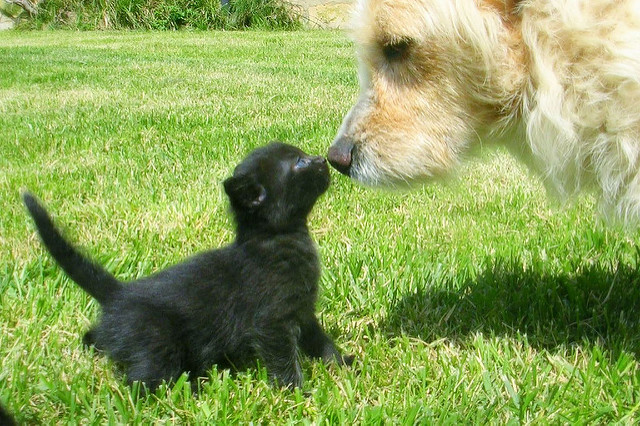-
3-minute read
-
5th October 2017
Grammar Tips: Compound Subjects
Verb agreement can be tricky at the best of times. But it gets trickier still when it comes to compound subjects. Lucky for you that we’re here, then: reading our quick guide will help you avoid grammatical errors in your work.
What Are Compound Subjects?
The subject in a sentence is typically the thing or person acting. In the following, for example, the subject is ‘cat’, since the cat is the thing performing the verb (i.e. ‘is’):
The cat is teasing the dogs.
Here, we use a singular verb because ‘cat’ is singular. If the subject is plural, on the other hand, we would use a plural verb instead (i.e. ‘are’):
The dogs are chasing the cat.
A compound subject, meanwhile, is formed using ‘and’, ‘or’ or ‘nor’ to connect two things. But whether we use a singular or plural verb with a compound subject depends on how it’s formed.

(Photo: Stefano Mortellaro/flickr)
Compound Subjects Formed with ‘And’
When a compound subject is formed using ‘and’, you should almost always use a plural verb:
The dogs and the cat are running around in circles.
This is true even though ‘cat’ in the sentence above is a singular noun.
Compound Subjects Formed with ‘Or’ and ‘Nor’
When a compound subject is formed using ‘or’ or ‘nor’, however, the verb to use depends on the term closest to the verb. When this is a singular noun, we use a singular verb:
Find this useful?
Subscribe to our newsletter and get writing tips from our editors straight to your inbox.
Subscribe to Beyond the Margins and get your monthly fix of editorial strategy, workflow tips, and real-world examples from content leaders.
Either the dogs or the cat is going to end up at the vet.
But when the term closest to the verb is a plural noun, we use a plural verb:
Neither the cat nor the dogs are innocent in this situation.
Make sure to check the verb you’re using when forming a compound with ‘or’ or ‘nor’.
Singular Compound Subjects
We said above that compound subjects formed with ‘and’ almost always take a plural verb. The ‘almost’ is because, in some cases, terms formed with ‘and’ are treated as singular. For instance:
Gin and tonic is my favourite drink.
This is simply because ‘gin and tonic’ is the name of a single thing. If we used a plural verb in the sentence above, it’d seem like we were referring to two separate drinks.

(Photo: sgroene)
This only applies when two terms are conventionally joined with ‘and’, though. Make sure to check online if you’re not sure whether to treat a phrase as singular or plural.